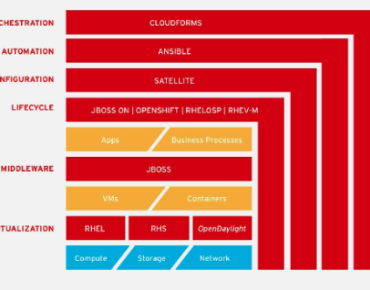Red Hat Integrating Newly Acquired DevOps Tools

Less than a week after announcing its acquisition of IT automation tool and DevOps specialist Ansible, Red Hat said it has closed the transaction and begun integrating the startup's open-source tools into its hybrid cloud management infrastructure.
Joe Fitzgerald, Red Hat's vice president and general manager of its management business unit, acknowledged on Thursday (Oct. 22) the Ansible deal creates some overlap with its existing tools and other IT automation tools supported by Red Hat such as Chef and Puppet. "The synergies outweigh the overlap," Fitzgerald asserted during a company webinar.
Red Hat's "frictionless IT" strategy is focused on developing next generation architectures built around a growing set of IT automation tools. The goal is to accelerate deployment of hybrid infrastructure that supports, for example, cloud-native applications on infrastructure- and platform-as-a-service clouds. At the same time, Red Hat (NYSE: RHT) said it acquired Ansible to help reduce the complexity and level of expertise needed to implement cloud platforms like OpenStack.
"We believe [cloud] management is going to be essential," Fitzgerald stressed in explaining the rationale behind the Ansible deal. "We are all about supporting hybrid, heterogeneous clouds. We are going to continue to expand that."
Fitzgerald and Todd Barr, Ansible's senior vice president, both emphasized the IT automation deal would help ease deployment and configuration of cloud platforms like OpenStack. They cited node deployment, instance provisioning and application configuration as examples of how they could ease OpenStack installations that have often proved difficult.
"We expect this [acquisition] to benefit OpenStack customers," Fitzgerald stressed.
Barr noted the growing number of public playbooks available for deploying OpenStack, adding that Ansible's automation tools could then be used to deploy cloud-native applications. Meanwhile, Fitzgerald said Red Hat would continue supporting Puppet and Chef configuration management tools. "It doesn't have to be a 'either/or' proposition," he added.
Addressing concerns about possible overlap resulting from the acquisition, Fitzgerald said Red Hat's Satellite management tool would continue to support current configuration tools like Puppet while adding support for Ansible's automation and DevOps tools.
Along with Red Hat, Ansible, Durham, N.C., has worked since its launch in early 2013 with networking specialists like Cisco Systems on OpenStack integration and Juniper Networks on IT automation projects. It has previously worked with Red Hat to ease the provisioning of Satellite, the Red Hat Enterprise Linux manager.
Ansible’s orchestration framework is based on the YAML (Yet Another Multicolumn Layout) automation syntax. Among other things, the data serialization format is used for interaction with scripting languages like Perl and Python. It also utilizes SSH on Linux or Unix or WinRM and PowerShell on Windows, eliminating the need for an agent.
The Ansible deal "solidifies Red Hat's position and stature as a DevOps provider," according to Jay Lyman, research manager for cloud platforms at 451 Research. He noted that the Ansible acquisition reflects the expansion of DevOps from hyper-scalers and early adopters like financial services firms to mainstream users in the health care, retail and transportation sectors along with government users.
Related
George Leopold has written about science and technology for more than 30 years, focusing on electronics and aerospace technology. He previously served as executive editor of Electronic Engineering Times. Leopold is the author of "Calculated Risk: The Supersonic Life and Times of Gus Grissom" (Purdue University Press, 2016).











